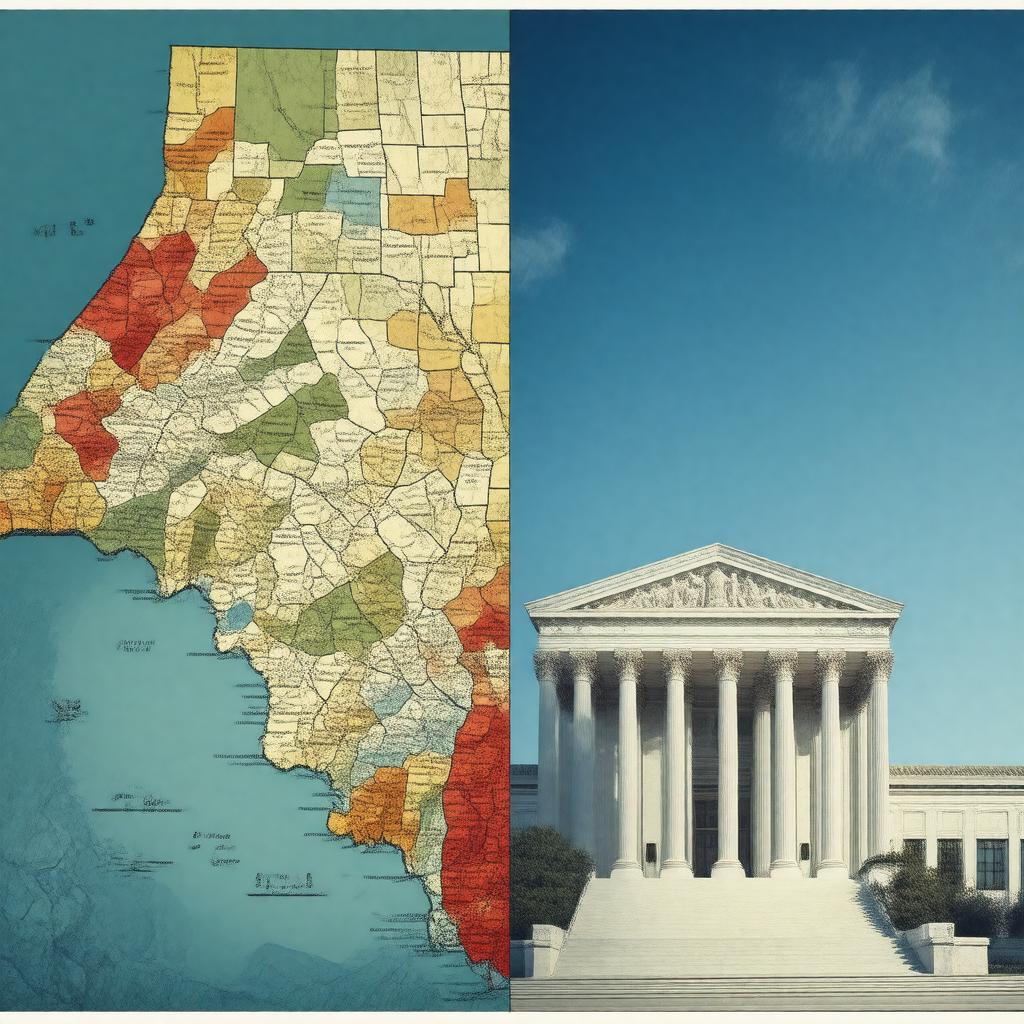Prompt
"Create an image of a split-screen illustration representing the Rucho v. Common Cause Supreme Court case, with one side depicting a partisan gerrymandered map of North Carolina and the other side showing the US Supreme Court building, emphasizing the 5-4 decision that federal courts have no authority to rule on partisan gerrymandering claims, on a somber and divided tone."

